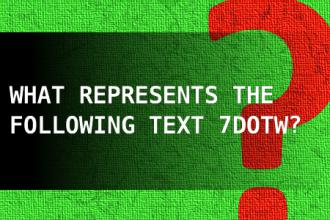What represents the following ...
Brain Teasers
[2689] What represents the following ... - What represents the following text 7DOTW? - #brainteasers #riddles - Correct Answers: 49 - The first user who solved this task is On On Lunarbasil

2016-08-29

